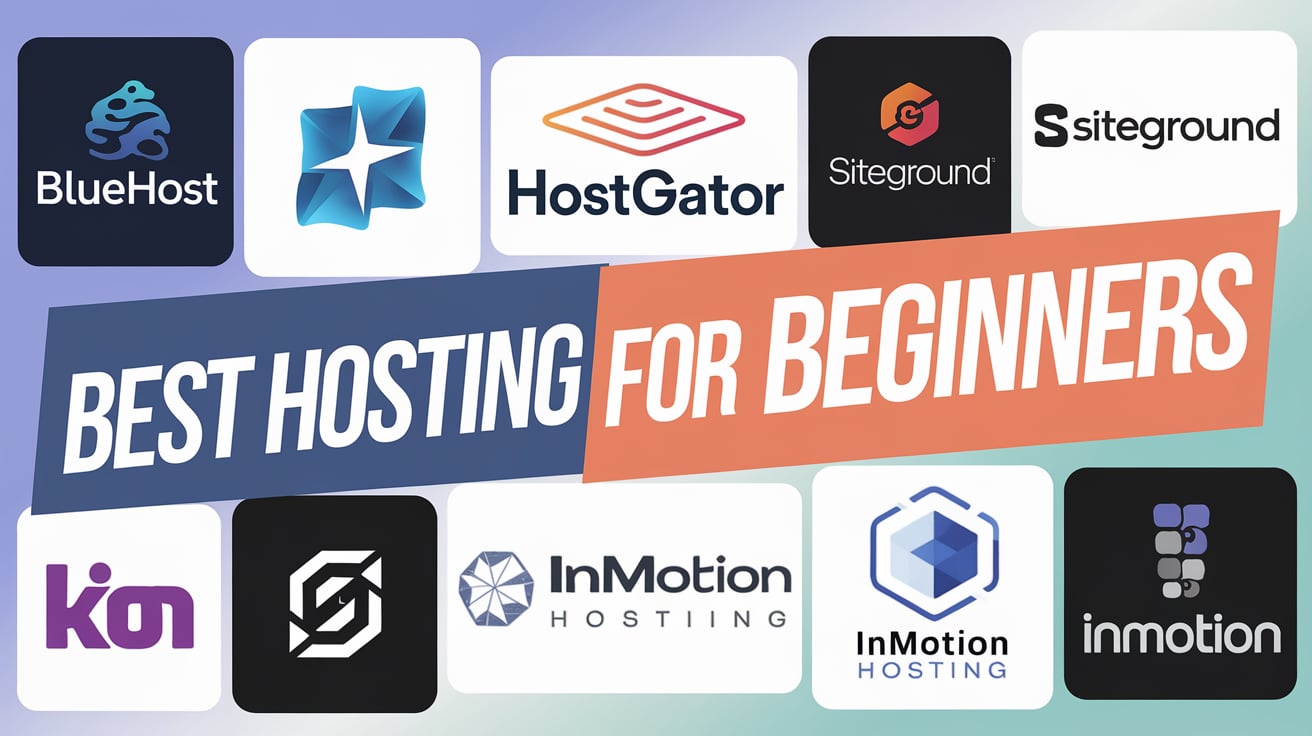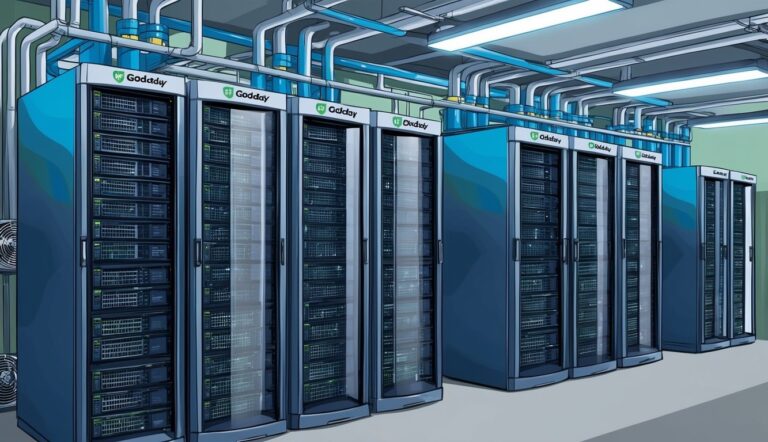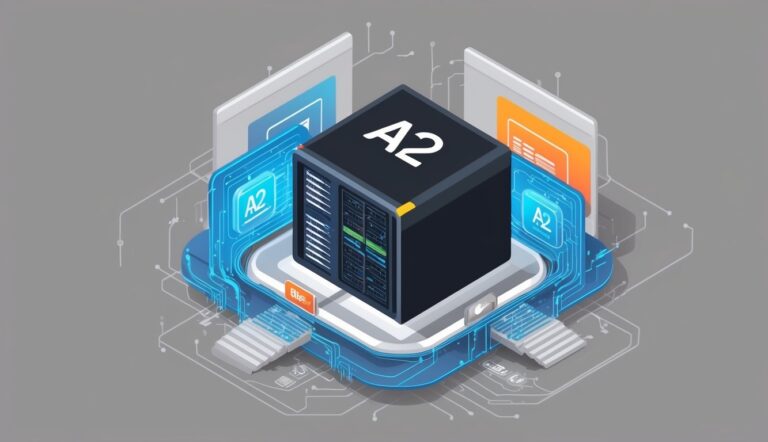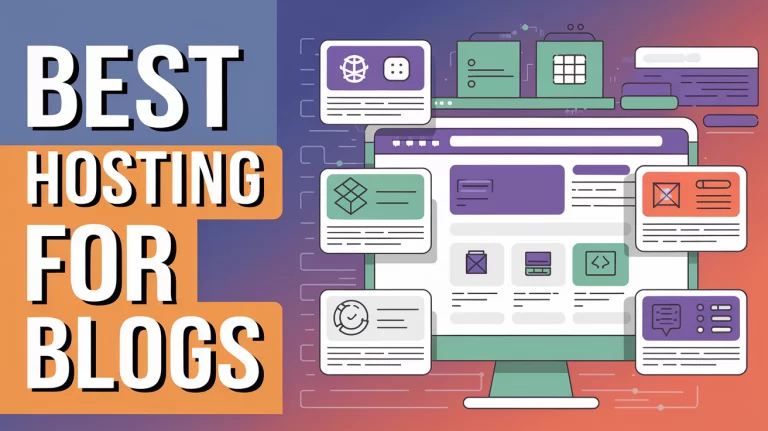Best Hosting for Beginners: Easy Setup and Affordable Options

Hey there! I’m super excited to talk about web hosting for beginners today. If you’re just starting out with your first website, choosing the right hosting can feel pretty overwhelming. There are so many options out there – how do you know which one is best?

The top hosting services for beginners offer user-friendly interfaces, helpful support, and affordable plans to get you up and running quickly. I’ve done tons of research and testing to find the best web hosting for newcomers in 2024. In this article, I’ll break down the key features to look for and share my top picks that’ll make launching your site a breeze. Let’s dive in and find you an awesome host to bring your website dreams to life!
1) Bluehost
I’ve gotta say, Bluehost is a real contender for beginners looking to get their feet wet in the world of web hosting. It’s one of the biggest hosting companies out there, and for good reason!
When I first tried Bluehost, I was impressed by how user-friendly it is. The interface is super intuitive, which is perfect if you’re just starting out. Plus, they offer 24/7 customer support, so you’re never left hanging if you run into any issues.
One thing that really caught my eye is that Bluehost is officially recommended by WordPress. That’s a pretty big deal if you’re planning to use WordPress for your site, which many beginners do.
Now, let’s talk pricing. Bluehost offers a range of plans to fit different needs and budgets. I found their shared hosting plans to be particularly wallet-friendly for newcomers.
Pros:
- User-friendly interface
- 24/7 customer support
- WordPress recommended
- Affordable pricing options
Cons:
- Performance may lag under high traffic
- Some upsells during checkout
Want to learn more? Check out this detailed Bluehost review for all the nitty-gritty details!
2) SiteGround
I’ve gotta say, SiteGround is a real gem for beginners in the web hosting world. It’s like they’ve rolled out the red carpet for newbies!
First off, their user interface is a breeze. I mean, even if you’ve never touched a hosting panel before, you’ll feel right at home. They’ve got this one-click WordPress installation that’s so smooth, it’s like spreading butter on hot toast.
Now, let’s talk speed. SiteGround doesn’t mess around when it comes to performance. They’ve got some fancy tech under the hood that keeps your site zipping along. Trust me, your visitors won’t be twiddling their thumbs waiting for pages to load.
Oh, and their customer support? It’s top-notch. I’ve had times when I needed help, and these guys were on it faster than I could say “website crash.”
But here’s the kicker – they’re not just for rookies. As your site grows, SiteGround grows with you. They’ve got plans that’ll keep up with your success.
Pros:
- Super beginner-friendly
- Lightning-fast performance
- Stellar customer support
- Easy WordPress integration
Cons:
- Prices can increase after initial term
- Some advanced features might be overkill for absolute beginners
Want to dive deeper? Check out this detailed SiteGround review for more info!
3) A2 Hosting
I’ve gotta say, A2 Hosting is a real gem for beginners looking to get their first website off the ground. These folks offer some seriously fast and reliable WordPress hosting that’ll make your site zip along.
One thing I love about A2 is their user-friendly approach. They’ve got this nifty Client Area dashboard that makes managing your hosting account a breeze. Even if you’re new to this whole web hosting thing, you’ll feel right at home.
Now, let’s talk speed. A2 Hosting doesn’t mess around when it comes to site loading times. They aim for that sweet spot of two seconds or less, which is exactly what you want for keeping visitors happy and engaged.
For WordPress enthusiasts, A2’s got you covered with their managed WordPress hosting plans. These are perfect if you want to focus on creating content without worrying about the technical mumbo-jumbo.
Pros:
- Lightning-fast loading times
- Beginner-friendly dashboard
- Excellent WordPress support
Cons:
- Higher prices for managed plans
- Limited storage on basic plans
Want to learn more? Check out A2 Hosting’s official website for all the juicy details!
4) InMotion Hosting
I’ve gotta say, InMotion Hosting is a real contender for beginners looking to get their website off the ground. They offer a ton of features that make getting started a breeze.
One thing I love is their free domain name with all hosting plans. That’s a nice little perk that can save you some cash when you’re just starting out.
Their plans are pretty budget-friendly too. You can get WordPress hosting starting at just $8 a month. That’s not too shabby for all the features you get!
I’m also impressed with their customer support. They’ve got a U.S. based team that’s available 24/7. Trust me, when you’re new to hosting, having good support is a lifesaver.
One thing to keep in mind is that they offer shared hosting. This means your site shares server resources with others. It’s great for beginners, but you might outgrow it as your site gets bigger.
Pros:
- Free domain name
- Affordable plans
- 24/7 U.S. based support
- Good uptime
Cons:
- Shared hosting may slow down with high traffic
- Higher renewal prices
Want to learn more? Check out InMotion’s WordPress hosting options.
5) GreenGeeks
I’ve got to say, GreenGeeks really caught my eye when I was looking for beginner-friendly hosting options. They’re not just another hosting company – they’re on a mission to make the internet greener!
What I love about GreenGeeks is their commitment to the environment. They use renewable energy to power their servers, which is pretty awesome if you ask me. But don’t worry, they don’t compromise on performance.
Their shared hosting plans are perfect for newbies. They offer easy-to-use tools and a one-click installer for popular content management systems. I found their control panel to be super intuitive, even for someone just starting out.
GreenGeeks also provides solid customer support. In my experience, their team is always ready to help with any questions or issues you might run into.
Pros:
- Eco-friendly hosting
- Beginner-friendly features
- Excellent customer support
- Affordable pricing
Cons:
- Limited advanced features for power users
- Only a few data center locations
Want to learn more? Check out GreenGeeks’ official website for all the details!
6) HostGator
Hey folks! Let me tell you about HostGator, a web hosting provider that’s been making waves in the industry. With over 10 million domains under their belt, these guys know a thing or two about hosting!
I’m really impressed by their beginner-friendly approach. They offer 1-click WordPress installation, which is perfect if you’re just starting out and don’t want to mess with complicated setups.
One thing I love about HostGator is their 99.9% uptime guarantee. That means your website will be up and running almost all the time. No more worrying about your site going down when you least expect it!
Their 24/7 support is another big plus in my book. Trust me, when you’re a beginner, having someone to help you out at any time of the day (or night) is a real lifesaver.
Now, let’s talk pricing. HostGator’s plans start at just $2.75 per month. That’s a steal for what you’re getting!
Pros:
- Easy to use
- Affordable pricing
- 24/7 customer support
- 99.9% uptime guarantee
Cons:
- Can be slow during high traffic
- Upselling during checkout
Want to learn more? Check out HostGator’s website for all the juicy details!
7) DreamHost
I’ve gotta say, DreamHost is a real gem for beginners in the web hosting world. They’ve won some serious kudos, including the PCMag Readers’ Choice Award for best business hosting. That’s no small feat!
Their control panel is a breeze to use, perfect if you’re just starting out. I love how they make WordPress installations super easy. It’s like they’ve rolled out the red carpet for newbies.
DreamHost offers a bunch of hosting options to fit different needs. Whether you’re launching a personal blog or a small business site, they’ve got you covered.
One thing that really impresses me is their customer support. It’s top-notch! If you run into any issues, they’re there to help you out.
Now, let’s talk speed. DreamHost doesn’t disappoint in this department. Your website visitors won’t be twiddling their thumbs waiting for pages to load.
Pros:
- Easy to use for beginners
- Great WordPress support
- Excellent customer service
- Affordable pricing
Cons:
- Limited phone support
- Some advanced features may be lacking
Want to learn more? Check out this detailed DreamHost review for all the juicy details!
8) iPage
I’ve gotta say, iPage is pretty nifty for newbies looking to get their feet wet in the web hosting world. It’s got this super easy-to-use control panel that even my grandma could figure out. No tech degree required here, folks!
The pricing is where things get interesting. They’ve got some sweet intro deals starting at just $1.99 per month. But watch out! Those prices can jump up when it’s time to renew. It’s like a roller coaster for your wallet.
Now, let’s talk features. iPage isn’t stingy – you get unlimited bandwidth, which means your site can handle tons of visitors without breaking a sweat. Plus, they throw in a free domain name for the first year. It’s like getting a cherry on top of your hosting sundae!
But it’s not all rainbows and unicorns. The basic plan is shared hosting, so you’re splitting resources with other sites. It’s like living in an apartment building – sometimes your neighbors might hog the bandwidth.
Pros:
- Super beginner-friendly
- Affordable intro rates
- Free domain for the first year
- Unlimited bandwidth
Cons:
- Prices increase on renewal
- Shared hosting can be slower
- Basic control panel might limit advanced users
Want to learn more? Check out iPage’s official site for all the juicy details!
9) AccuWeb Hosting
I’ve got to say, AccuWeb Hosting really caught my eye as a great option for beginners. They’ve got this super easy setup process that’ll have you up and running in no time.
One thing I love is their free WordPress hosting option. It’s perfect if you’re just starting out and want to test the waters without spending a dime.
But don’t think “free” means skimping on features. AccuWeb still packs in daily backups, SSL certificates, and even Softaculous for easy app installs. Talk about bang for no bucks!
If you need a bit more oomph, their paid plans are pretty solid too. I’m talking cPanel access, plenty of storage, and even VPS options if you’re feeling ambitious.
What really seals the deal for me is their customer support. These folks are available 24/7 and actually know their stuff. Trust me, when you’re just starting out, that kind of help is priceless.
Pros:
- Free WordPress hosting option
- Easy setup for beginners
- Reliable performance
- 24/7 expert support
Cons:
- Limited resources on free plan
- Paid plans can be pricier than some competitors
Want to learn more? Check out AccuWeb’s full range of hosting services and see if they’re the right fit for you!
10) Hostinger
I’ve gotta say, Hostinger is one of my top picks for beginners getting into web hosting. They’ve really nailed the balance between affordability and features.
Their plans start at just $2.99 per month, which is a steal for what you get. I’m talking about free domain registration, SSL certificates, and even website building tools.
But what really impressed me is how user-friendly their control panel is. It’s a breeze to navigate, even if you’re new to this whole hosting thing.
Speed is another area where Hostinger shines. Their servers are lightning fast, which means your website visitors won’t be twiddling their thumbs waiting for pages to load.
They’ve also recently added an AI troubleshooting tool that makes solving hosting issues a piece of cake for newbies.
Pros:
- Super affordable plans
- User-friendly interface
- Fast loading speeds
- Free domain and SSL
Cons:
- Limited storage on basic plans
- Higher renewal prices
Want to learn more? Check out Hostinger’s full feature set on their website.
Understanding Basic Hosting
Web hosting can seem complicated, but it’s actually pretty straightforward once you break it down. Let me walk you through the basics and different types of hosting so you can choose what’s right for you.
What Is Web Hosting?
Web hosting is like renting space on the internet for your website. It’s where all your website files live so people can access them online. When you sign up for hosting, you’re basically paying a company to keep your site up and running 24/7.
Think of it as a digital home for your website. You need an address (domain name) and a place to store your stuff (hosting). Without hosting, your site would have nowhere to live!
Web hosting companies provide the servers, technology, and support to keep your site online. They handle all the technical stuff so you can focus on creating awesome content.
Types of Web Hosting Services
Alright, let’s dive into the different flavors of web hosting. There’s a ton of options out there, but I’ll break down the most common ones for you.
Shared Hosting: This is the budget-friendly option. You’re sharing server resources with other websites, kind of like living in an apartment building. It’s great for beginners and small sites.
VPS (Virtual Private Server): A step up from shared hosting. You get your own slice of a server, with more control and resources. It’s like having your own apartment in that building.
Dedicated Hosting: This is the big leagues. You get an entire server to yourself. It’s perfect for large, high-traffic sites that need lots of power.
Cloud Hosting: Your site is hosted across multiple servers, which means better uptime and scalability. It’s like having your website spread across a whole neighborhood!
Each type has its pros and cons, so think about your needs and budget when choosing. Beginner-friendly hosts often offer easy setup and good support to help you get started.
Key Features for Beginners
When choosing a web host, there are some crucial features you’ll want to look out for. Let’s dive into the most important ones that’ll make your life easier as a beginner.
Ease of Use
I can’t stress this enough – a user-friendly interface is a game-changer for newbies! Look for hosts that offer one-click installations for popular platforms like WordPress. It’s like magic – you click a button, and boom! Your site is up and running.
Another awesome feature is a drag-and-drop website builder. Trust me, it’s way easier than coding from scratch. You can create a stunning site without knowing a lick of HTML.
Don’t forget about the control panel. cPanel is pretty common and super intuitive. It’s like the cockpit of your website, letting you manage everything from one place.
Lastly, keep an eye out for hosts that offer free domain registration. It’s one less thing to worry about, and who doesn’t love free stuff?
Customer Support
When you’re just starting out, you’re bound to have questions. That’s why top-notch customer support is crucial. I always recommend looking for hosts that offer 24/7 support. Because let’s face it, website issues don’t always happen during business hours.
Live chat is a fantastic feature to have. It’s quick, and you can multitask while waiting for responses. Phone support is great too, especially for more complex issues.
Some hosts offer dedicated support for beginners. These teams are trained to explain things in simple terms, which is super helpful when you’re just learning the ropes.
Knowledge bases and video tutorials are also lifesavers. They let you troubleshoot issues on your own, at your own pace. It’s like having a personal tech guru at your fingertips!
Affordability
Let’s talk money! As a beginner, you probably don’t want to break the bank on hosting. The good news is, there are plenty of budget-friendly options out there.
Shared hosting is usually the cheapest option. It’s perfect for small websites and blogs. Prices can start as low as $2-$3 per month. That’s less than a cup of coffee!
Look for hosts that offer a money-back guarantee. It’s like a risk-free trial – if you’re not happy, you can get your money back. Most hosts offer 30-day guarantees, but some go up to 90 days.
Watch out for renewal prices. Many hosts offer great introductory rates, but the price can jump when you renew. Always check the regular pricing before committing.
Lastly, consider what’s included in the package. Free SSL certificates, email accounts, and backups can save you a lot of money in the long run.
Common Challenges for Beginners
When starting out with web hosting, you’ll likely face some hurdles. Let’s dive into two big ones that can really trip up newcomers.
Technical Jargon
Boy, do I remember my first time trying to set up a website! The amount of tech-speak thrown at me was like drinking from a firehose. You’ve got your:
- DNS records
- FTP clients
- PHP versions
- MySQL databases
It’s enough to make your head spin! I found myself constantly googling terms just to understand basic instructions. And let’s not even get started on cPanel – that control panel can look like the cockpit of a spaceship when you first see it.
My advice? Take it slow. Don’t be afraid to reach out to your hosting provider’s support team. They’re usually super friendly and can explain things in simpler terms. Also, look for hosts that offer beginner-friendly guides or video tutorials. Trust me, they’re lifesavers!
Site Downtime
Nothing’s worse than excitedly sharing your new site with friends, only to get a “This site can’t be reached” message. Ugh! Site downtime can be a real mood killer for beginners.
I’ve learned that cheap hosting plans often come with more frequent outages. It’s tempting to go for the lowest price, but reliability matters. Look for hosts that offer:
- 99.9% uptime guarantees
- 24/7 customer support
- Automatic backups
These features can save you a ton of headaches. Remember, a little extra cost upfront can mean way less stress down the road. And if you do experience downtime, don’t panic! Contact your host’s support team right away. They can usually get you back up and running in no time.






